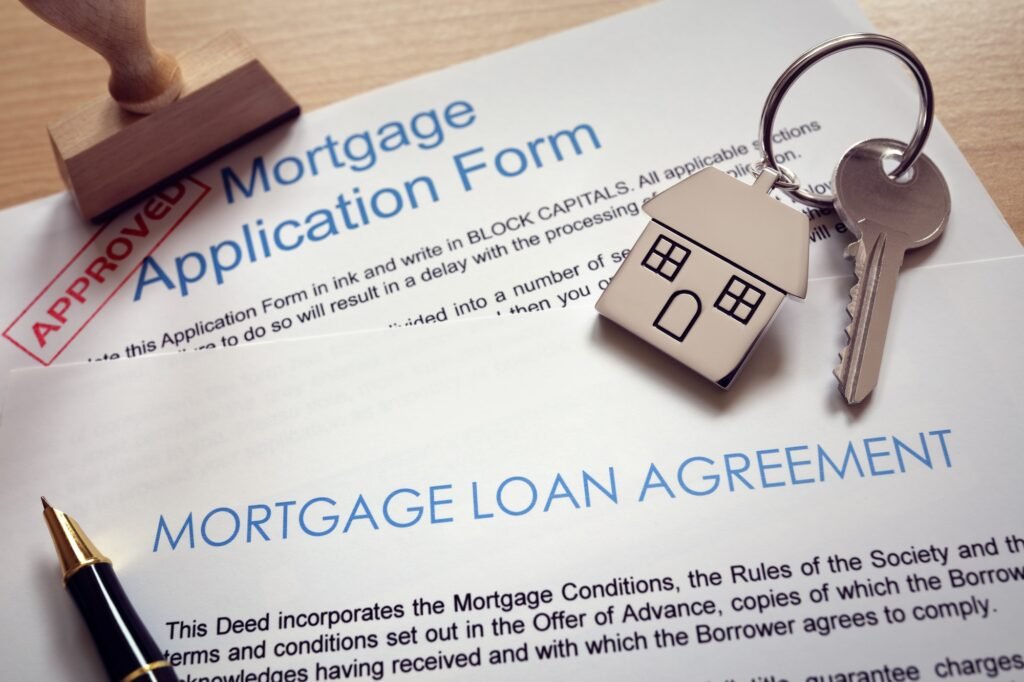Navigating the journey to homeownership can be complex, but with the right guidance and preparation, it can also be incredibly rewarding. Here’s my in-depth look at each stage of preparing to purchase a home and securing a mortgage.
Preparing to Buy a Home

The first step in your home-buying journey is assessing your financial health. This critical phase lays the groundwork for a successful purchase. Start by obtaining a free credit report from major credit bureaus such as Equifax, Experian, and TransUnion. Your credit score, a key component of this report, is vital in determining your eligibility for a mortgage and the interest rates you’ll receive. Aim for a score above 670, as higher scores generally lead to better loan terms. Alongside your credit score, calculate your debt-to-income (DTI) ratio, which lenders use to evaluate your ability to manage monthly payments and repay debts. A lower DTI ratio, preferably under 36%, enhances your mortgage prospects.
Next, closely review your savings. Ensure you have sufficient funds for a down payment, which varies depending on the loan type and home price. Typically, a larger down payment reduces your loan amount and monthly payments. Don’t forget to set aside money for closing costs, usually 2% to 5% of the loan amount, and an emergency fund for unforeseen expenses.
Budgeting for your home purchase extends beyond the mortgage payment. Include other homeownership costs like property taxes, homeowners insurance, and potential HOA fees in your budget. These can significantly impact your overall housing costs. Use online mortgage calculators to get an estimate of your monthly mortgage payments, and set a maximum price limit based on your comprehensive budget.
Getting pre-approved for a mortgage is another crucial step. This not only clarifies your budget but also strengthens your position as a buyer. For pre-approval, gather essential financial documents, including recent pay stubs, tax returns, and bank statements. Shop around to compare pre-approval offers from various lenders, and remember, pre-approval letters have an expiration date, so keep an eye on that as well.
House Hunting

Once you’re financially prepped, it’s time to start house hunting. This exciting phase involves finding a home that meets both your needs and budget. Consider your long-term needs, including location, size, type of home, and amenities. Engaging with a real estate agent who understands your preferences and the local market can be incredibly beneficial. Define your must-have features, such as the number of bedrooms or yard size, and identify preferred neighborhoods based on factors like schools, commute, and community feel. As you visit open houses and schedule viewings, keep detailed notes on each property for comparison.
Making an offer is a critical juncture in the house hunting process. An offer includes the price and terms and conditions of the sale. It should be based on a thorough market analysis, which can be facilitated by your real estate agent. Be prepared for possible negotiations and ensure you understand all aspects of the contract, including deposit requirements and the closing timeline.
Mortgage Application and Approval Process
After your offer is accepted, it’s time to formalize your mortgage application. Choose a lender if you haven’t already, and submit a comprehensive application with all required documentation. This process will also include a home appraisal and inspection, which are crucial for determining the property’s value and condition.
The closing process is the final step in securing your home. It involves signing a lot of paperwork, paying closing costs, and finally, receiving the keys to your new home. Review the closing disclosure carefully, prepare for the required funds for closing costs, and conduct a final walkthrough of the property to ensure everything is in order.
Bonus Tips and Tricks for the Mortgage Process
Shopping around for lenders is essential. Don’t just settle for the first offer; explore various lenders, including banks, credit unions, and online lenders, to find the best rates and terms. Understand the different types of mortgages available, such as fixed-rate, adjustable-rate, FHA, and VA loans, and choose one that best suits your financial situation. Aim to save for a larger down payment to avoid private mortgage insurance (PMI), and ensure you’re aware of all costs involved in the mortgage process, including closing costs. Lastly, keep all your documents, contacts, and information organized to streamline the process.
Next Steps to take
Purchasing a home and getting a mortgage is a significant undertaking, but with thorough preparation and informed decision-making, it can lead to one of life’s most fulfilling milestones – homeownership. Whether you’re at the initial stages of considering a home purchase or actively searching for one, this guide is designed to provide clarity and help you navigate the process with confidence. Remember, each step forward is a move towards building your future in a home of your own.




